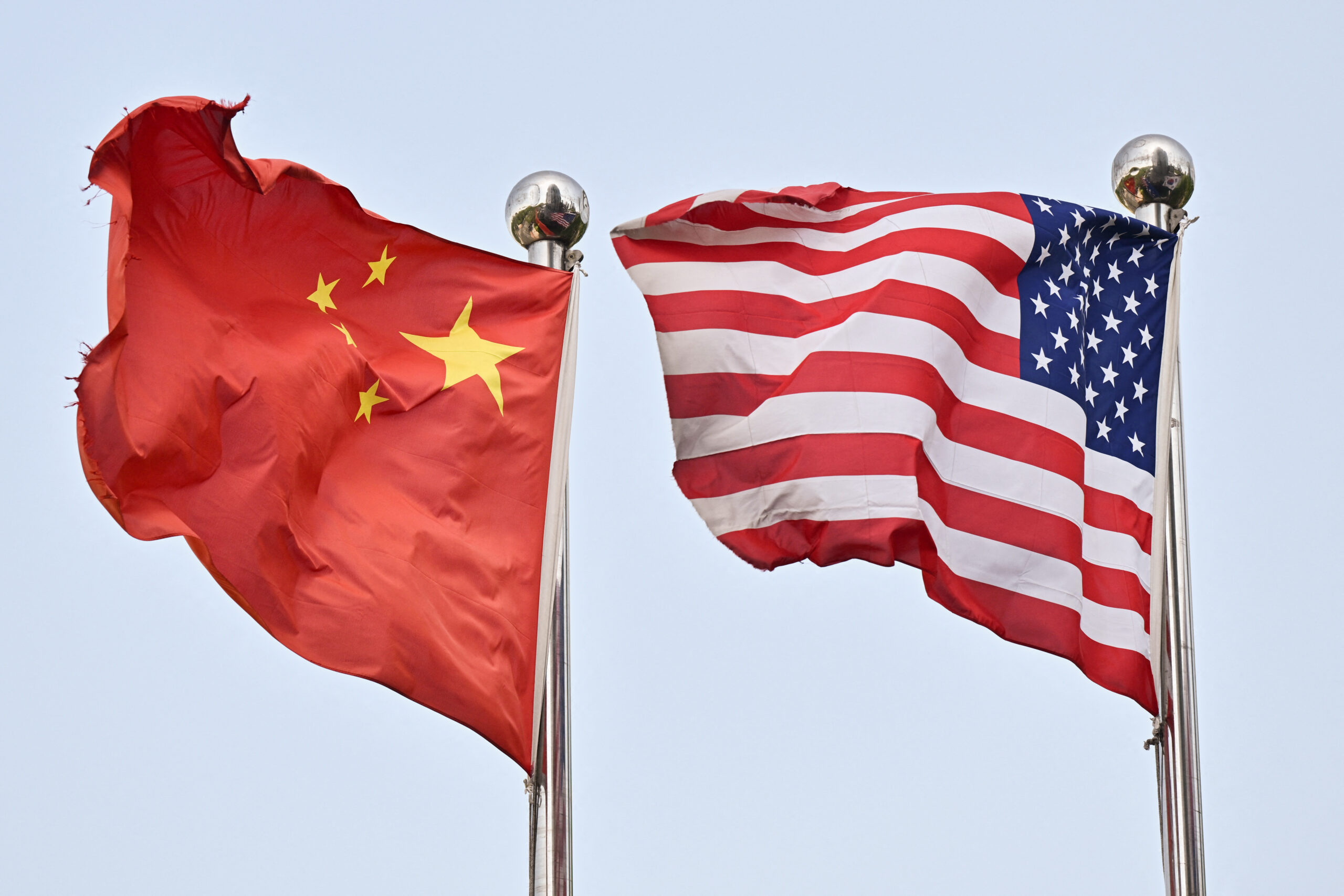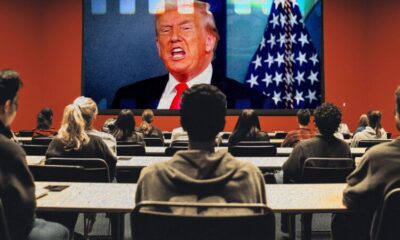Education
US Aims to Welcome More Chinese Students Amid Controversy

The recent announcement by President Donald Trump to increase the number of Chinese students studying in the United States has sparked significant debate. Trump suggested a plan to welcome an additional 600,000 students, a figure that exceeds the current number of approximately 277,000 Chinese students in the country. This proposal has drawn criticism from some who fear it may compromise national security and limit opportunities for American students.
While Trump’s figure was later clarified by the White House to represent “two years’ worth of visas,” the discussion highlights a broader issue: the benefits of attracting international talent. Currently, China ranks second only to India, which sends about 331,000 students to the U.S. Only 90,000 of the Chinese students are undergraduates, with many others on extended visas that allow them to work in the U.S. after graduation.
The argument that foreign students displace American students in higher education is largely unfounded. In the fall of 2023, out of nearly 16 million undergraduates, only 342,000 were international students, making up about 2% of the total. The majority of the 844,000 international students who entered the U.S. that academic year enrolled in graduate programs, often paying full tuition fees. This influx of tuition dollars supports scholarships and financial aid for American students, enhancing their educational opportunities.
Economic Contributions of International Students
International students play a crucial role in the U.S. economy. Their tuition fees help sustain numerous programs at public universities that might otherwise face closure. A 2017 study revealed that the financial contributions of foreign students allowed some states to reduce their education budgets, preventing tuition hikes for domestic students.
As the number of American high-school graduates declines annually, many colleges, which serve as vital community institutions, could face financial strain. International students can help mitigate this impact, benefiting local economies by supporting businesses such as restaurants and bookstores. Moreover, their long-term presence in the U.S. significantly contributes to the economy. Research by the Manhattan Institute indicates that each international student who completes a graduate degree in the U.S. can reduce the national debt by millions of dollars over a 30-year period.
International students often become integral members of the workforce, with some, like entrepreneur Elon Musk, achieving notable success. When talented individuals from countries like China, Iran, and Russia choose to study in the U.S., it represents a strategic advantage for American interests by preventing these potential leaders from supporting authoritarian regimes back home.
Policy Recommendations for Attracting Talent
To maximize the benefits of international students, U.S. policies should encourage their assimilation and integration into society. Enhanced measures for social media vetting of student visa applicants could help ensure that those admitted are genuinely interested in learning and contributing positively to American society.
Concerns have been raised about individuals with ties to authoritarian regimes gaining entry to the U.S. A troubling example includes a graduate student at Columbia University who openly identified as a member of the Chinese Communist Party (CCP). To avoid such situations, the U.S. State Department should consider direct inquiries about students’ affiliations with totalitarian regimes during the visa application process.
If the U.S. aims to remain competitive in attracting global talent, it must also facilitate pathways for international students to stay after graduation. Suggestions include exempting foreign graduates with advanced degrees in STEM fields from green-card caps and streamlining work visa processes.
As someone who immigrated to the U.S. from Venezuela, I understand the value of opportunity and freedom. The U.S. has much to gain from welcoming intelligent, ambitious young people from around the world who wish to study and innovate. By opening its doors wider to these students, America can secure its position as a leader in the global talent race.
-

 Science1 month ago
Science1 month agoNostradamus’ 2026 Predictions: Star Death and Dark Events Loom
-

 Technology2 months ago
Technology2 months agoOpenAI to Implement Age Verification for ChatGPT by December 2025
-

 Technology6 months ago
Technology6 months agoDiscover the Top 10 Calorie Counting Apps of 2025
-

 Health4 months ago
Health4 months agoBella Hadid Shares Health Update After Treatment for Lyme Disease
-

 Health5 months ago
Health5 months agoAnalysts Project Stronger Growth for Apple’s iPhone 17 Lineup
-

 Technology4 months ago
Technology4 months agoElectric Moto Influencer Surronster Arrested in Tijuana
-

 Education5 months ago
Education5 months agoHarvard Secures Court Victory Over Federal Funding Cuts
-

 Health5 months ago
Health5 months agoErin Bates Shares Recovery Update Following Sepsis Complications
-

 Technology7 months ago
Technology7 months agoMeta Initiates $60B AI Data Center Expansion, Starting in Ohio
-

 Technology6 months ago
Technology6 months agoDiscover How to Reverse Image Search Using ChatGPT Effortlessly
-

 Technology7 months ago
Technology7 months agoRecovering a Suspended TikTok Account: A Step-by-Step Guide
-

 Science3 months ago
Science3 months agoStarship V3 Set for 2026 Launch After Successful Final Test of Version 2



















